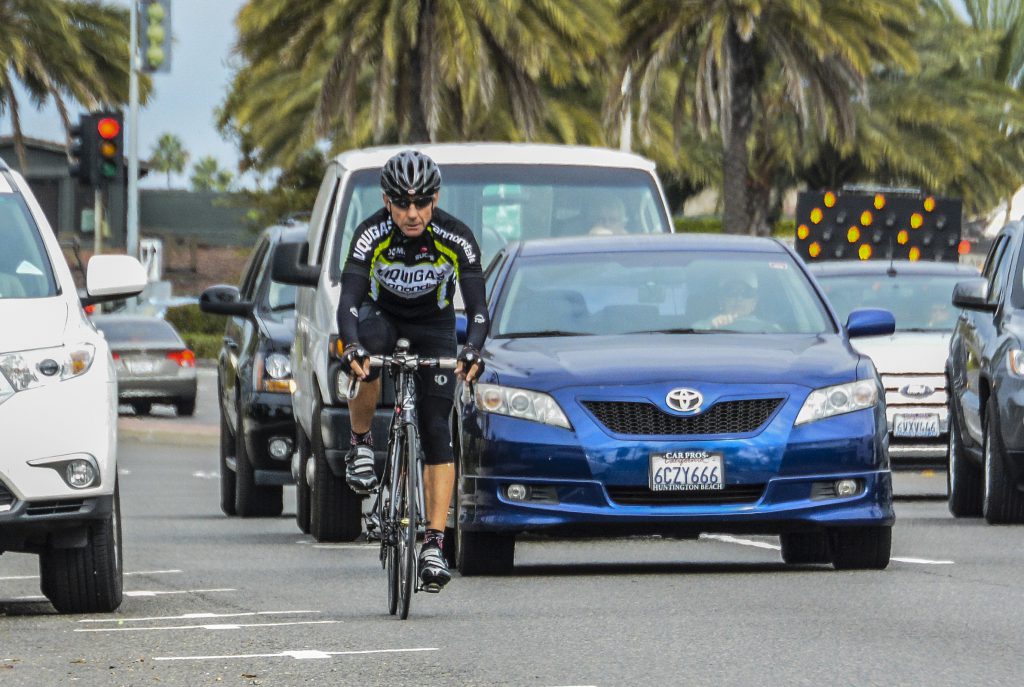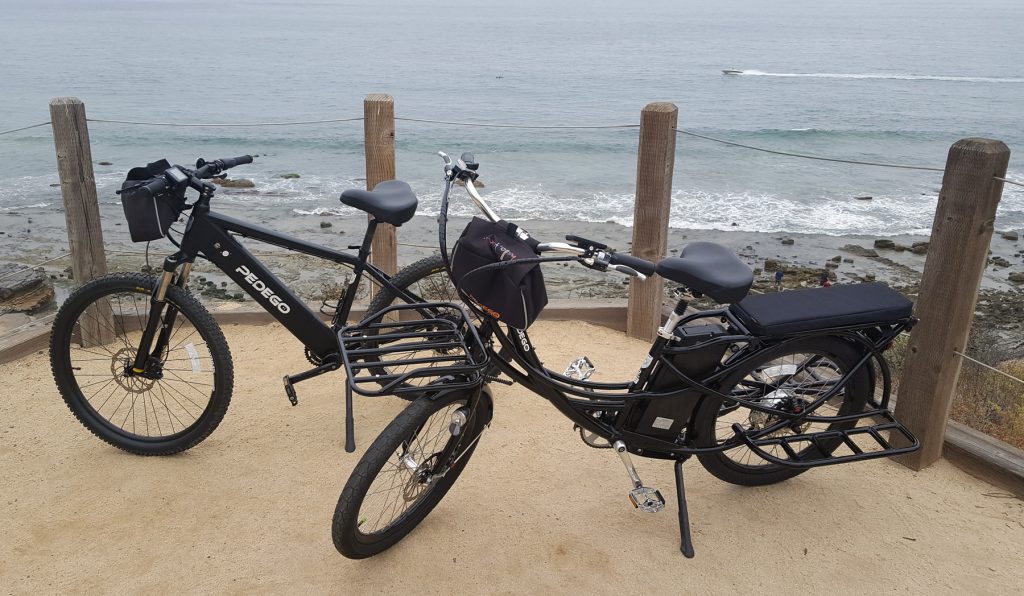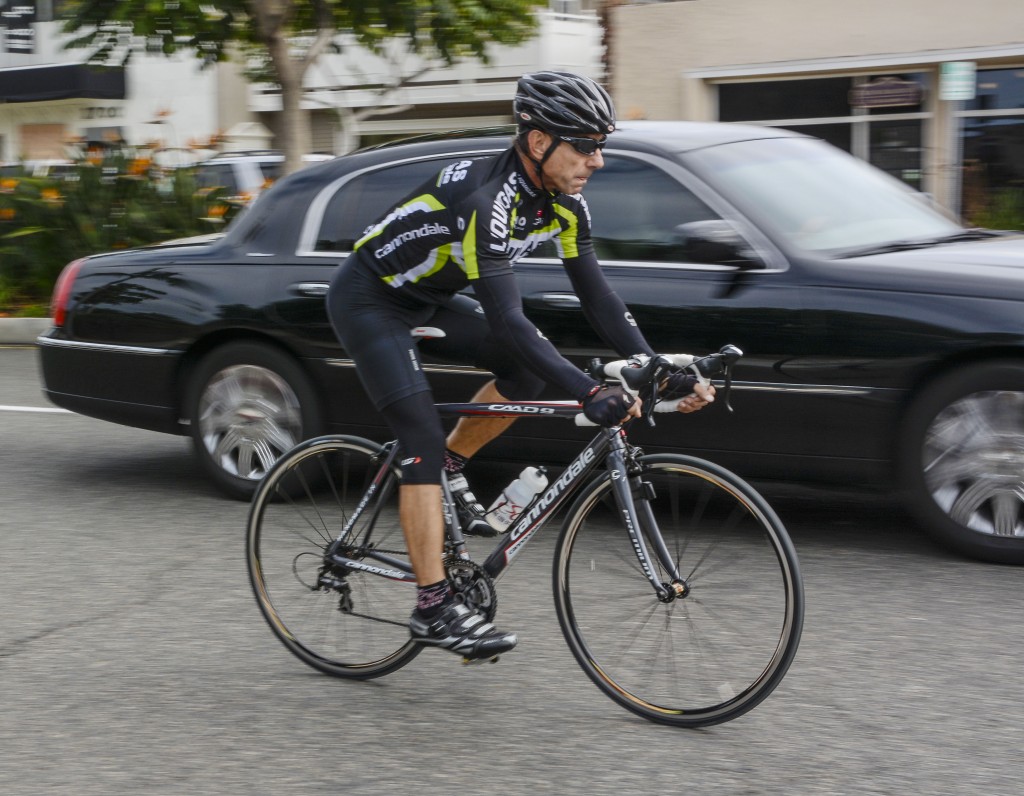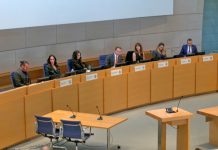
At the Newport Beach City Council study session prior to the City Council meeting on July 23, city staff presented a status update on the City’s 2014 Bicycle Master Plan.
Deputy Public Works Director Jim Houlihan introduced Transportation Manager and City Traffic Engineer Brad Sommers, who provided an overview of the bicycle plan and where the city is with the plan nearly ten years later.
As stated in the 224-page Bicycle Master Plan, the Master Plan “provides a broad vision, as well as strategies and actions, to improve conditions for bicycling throughout the City. As a means of bettering the bicycling environment, this Plan provides direction for expanding the existing bikeway network, connecting gaps within the City, and connecting to adjacent cities. In addition to providing recommendations for bikeways and support facilities, the Plan offers recommendations for education, encouragement,
enforcement, and evaluation programs.”
“The plan was adopted in October of 2014, and was conceived as a comprehensive long-range plan to provide vision for cycling improvements in the future of our city,” Sommers told the City Council. “The goal was to promote bicycle safety and responsible cycling. We developed the plan over a 17-month process that was overseen by an oversite committee, chaired by Tony Petros.”
According to Sommers, the Master Plan identified existing conditions, identified 170 facilities improvements, bike lanes, bike routes, and 30 bicycle related programs, including education, enforcement, and progressive designs, which at that time were very progressive, he noted.
“Looking at the programs, the city’s emphasis has been on education—the police department generally leads this, they have always done a tremendous job reaching out to the elementary schools, and more recently that has progressed to intermediate as well as high schools,” said Sommers. “We focus on the areas around schools, which is where the highest concentration of cycling is.”

Sommers said they are continuously reviewing policies, especially with electric bicycles.
“We most recently updated oceanfront safety municipal code sections to reflect new technology,” said Sommers. “We are continuously working to educate ourselves as staff so we can stay up on the latest trends, designs, and programs, and then bring that back to the city to see what may work best here. We are actively involved at the national, regional and local levels.”
Sommers noted that the city has completed about 30 percent of the 170 items in the Master Plan, including about 11.5 miles of new facilities. He cited water bottle refilling stations and bike racks as helping to encourage cycling within the city.
Sommers provide an overview of current projects that utilize recommendations from the Bicycle Master Plan, including the Superior Avenue pedestrian and bicycle bridge, pavement rehabilitation projects on Balboa Blvd. and Newport Blvd. in the Peninsula area, MacArthur Blvd., Von Karman, West Coast Highway and Newport Blvd., a Newport Pier concept and various development projects.
“The document has held up very well,” stated Sommers. “Cycling is a consideration in every roadway design. When I first started out, Newport Beach was always a good place to ride, but never progressed until the bike plan. Cycling is part of every conversation we have.”
Sommers then focused on electric bikes, which are increasingly being used by younger and older riders. He noted that they are treated as bicycles and have additional regulations which the state of California continues to work on.
Mayor Pro Tem Joe Stapleton said he is a cyclist who rides 50 to 100 miles per week. He said he supports this wholeheartedly and asked where the city goes from here.

Sommers replied that the city is in a good place from a design and enforcement aspect, but it may be appropriate for a minor update because electric bikes are now a bigger part of the conversation than they were 10 years ago. Overall, he stated that “the framework of the document is solid.”
Councilmember Erik Weigand asked about addressing electric bikes, although he knows the state vehicle code restricts some enforcement of electric bikes. He mentioned that some of the city’s residents are asking members of the city council to help with electric bike regulations, but he agrees there is not much more the city can do. He asked if there was a way to address some of the concerns he and other council members have heard.
“It’s more the kids on the e-bikes that are problematic,” said Weigand, adding that people write to him asking if he can do something about that. “Is there anything we can do as a council?”
“It has been challenging,” admitted Sommers. “The technology over the years has far outpaced regulations. The way the vehicle code is written, to my understanding, it does limit what the city can and cannot do. We do have an ordinance for the oceanfront that has items such as speed limits and unsafe operations. We have been following neighboring cities that have attempted to add regulations. They have had some success, but we are waiting on the state to come through with more items.”
Councilmember Brad Avery asked about the future widening of Pacific Coast Highway, particularly from Dover Drive to Superior Avenue, and wondered if there will be more separation between cars and bikers.
“The idea is to put comfortable bike lanes on that roadway,” replied Sommers. “That is the end goal.”
Councilmember Robyn Grant suggested that communication is key, and that a separate page on the city’s website would help promote bicycle safety.
“People could learn more if they were able to access the information better,” said Grant. “The police department has it on their website, but I think having it on the city’s website and making it user friendly might be helpful.”
During public comment, speakers asked the council to address safety on the Peninsula boardwalk, because some bicyclists were traveling 20 miles per hour while the posted speed limit is 8 miles per hour.
Mayor O’Neill ended the study session by stating he wished they did have more influence, but they have “our assembly member and state senator working on this issue.”
“We’ll stay on it,” promised O’Neill.
Access the Bicycle Master Plan here: https://www.newportbeachca.gov/government/departments/public-works/bicycle-master-plan




